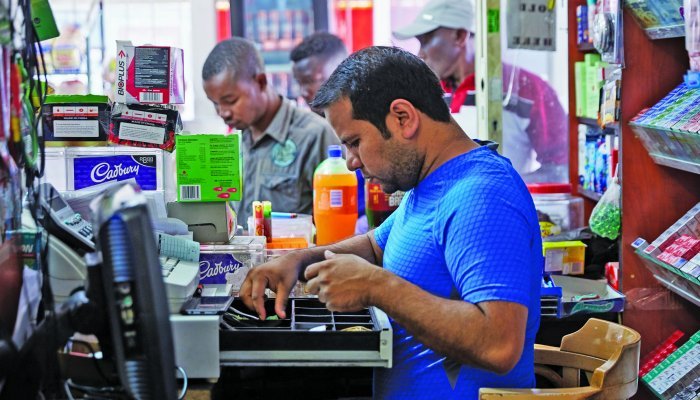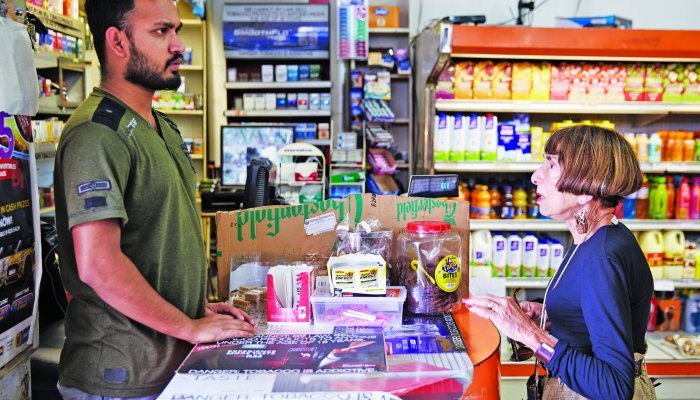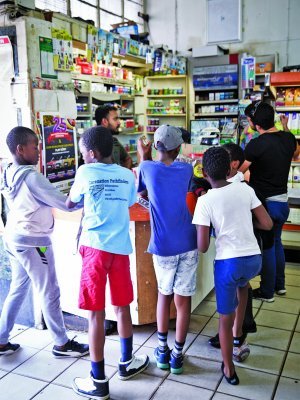Bangladeshis in South Africa haven’t had it easy, with many being caught up in waves of xenophobic attacks on foreigners in recent years. Despite the challenges, many continue – to use the popular South African street term – ‘hustle’ to make a living and show home-grown entrepreneurs how it should be done.
While the Bangladesh High Commission in Pretoria did not respond to queries regarding the size of the community in South Africa, the commission’s website notes that “about 40 000 Bangladeshi expatriates live in South Africa. Most of them are engaged in small businesses and the majority of them are undocumented. A few hundred Bangladeshis living in South Africa are professionals, speciality doctors, engineers, architects, accountants, etc.”
Other, more anecdotal sources, put the figure closer to 100 000, but with no formal manpower export agreement in place with South Africa the exact numbers remain sketchy. These expats have left their home country for any number of reasons, but they remain closely tied to their country and their culture; and many continue to make contributions back to Bangladesh.
Although the conditions in which they operate are often difficult, Bangladeshis appear to be flourishing across South Africa, operating spaza shops, retail outlets, grocery stores and trading companies, often selling essentials in small quantities to meet the needs of their customers.
Among this number are Dedarl Islam and Nayeem Rahman, the owners of Dedarl Supermarket and Ritz Café and Take Away respectively. These businesses, although unrelated to one another, share a street corner in the trendy Johannesburg suburb of Norwood, on the corner of Grant Avenue and Algernon Road.
Both Islam and Rahman are sanguine about having a competitor, literally, on their doorstep. “We offer different products, but you know it’s the same as going to a market where shops sell the same items,” says Islam. Rahman adds: “Look at how many restaurants sell sushi on Grant Avenue, so what is the difference if there is a café on the other side of the road selling similar things?”
Rahman, whose store predates Dedarl Supermarket, remains competitive by ensuring his shelves are well stocked, he has first-grade products, a clean store and offers good, quick service. Thanks to the fast food element, Rahman’s café has the benefit of foot traffic. But that is the only real differentiator: both store operators have the same work ethic and demand a lot from themselves and their staff. And they run cut-throat operations when it comes to mark-ups and turnover.
Long hours are also part and parcel of the Bangladeshi culture, says Islam. “Bangladeshis work 12 to 16 hours a day and [they] work hard.” It’s hard to find South Africans who are willing to put in similar hours, he admits, which is why they prefer to employ other Bangladeshis and African expats. “South Africans are clock watchers and don’t go the extra mile, [and] they also have unions protecting them. South Africans come with CVs saying all sorts of things but Bangladeshis prefer to do interviews to judge what a possible employee is really able to do,” says Islam.
Islam employs one Malawian man to help out in the shop, doing packing, cleaning, keeping an eye open and helping customers where necessary. He doesn’t work behind the till. Islam also employs another Bangladeshi man to relieve him when needed. This also helps with communication, he believes, as it’s easier for him to converse in Bengali. But employing a Bangladeshi is double the price of an African, admits Islam, and the cost must cover the employee’s food, clothes, rent and salary.
Across the road, Rahman employs one Zimbabwean lady and two South Africans, who prepare the food, load the shelves and clean. He also employs two Bangladeshis, who relieve him when he needs to collect stock or take a break. That, to be honest, isn’t often. Typically he puts in a 15-hour day, working from 7am to 10pm. “When you work for yourself, you don’t count the hours,” he admits.
For both Rahman and Islam business runs on slim margins and tight overheads. You can’t do anything about competition, says Islam, but what you can control is stocking the best items at the best prices. As a result, he only marks up around 5% to 10% and he keeps his overheads low by limiting the number of shop assistants and cutting on security costs. These savings are passed on to the customers, giving the store a competitive edge, he says. Rahman employs the same philosophy.
Convenience is also another key tenet of their business approach. The ability to pop in and out quickly without navigating endless queues is an important aspect of his business; after all, time is money and both men understand that for their customers convenience is vital.
Knowing their clientele’s preferences is something both Islam and Rahman monitor closely, not in the ‘business school market research’ way but through an understanding that stems from day-to-day interactions. Both stores, says Rahman, have a similar, mixed customer base which is about 50% black, 30% white and 20% other race groups. Or, as Islam says: “Our clients are a mix of different people; they are pretty much the same as the client that goes across the road.”
As a result of this identical demographic, if one store can’t help a customer then they happily refer them across the road. While Rahman attributes this to simply maintaining good relationships and “keeping a good vibe and quick service”, it highlights the collaboration between the two stores, and illustrates the community spirit which pervades Bangladeshi business.
Bangladeshi traders are generally happy to work together, pool resources and start up a business as a collective; but not always. While Islam agrees that it might be a good idea to join the shops, he is pragmatic about the limited space on Grant Avenue and declares that the rental across the road is more expensive – offering just a glimmer of the competition that exists between the two outlets. While Islam and Rahman may go to Mosque together, make no mistake that neither is prepared to give up their slice of the market. After all, for both men, these businesses are a ticket to a better life, both for themselves and their families.
Rahman, the son of a farmer, is driven to succeed. He would like to expand his business or even get involved in a car dealership in the future. He sees in South Africa a place of opportunity where he can build a successful future as a businessman. While Rahman has family settled in South Africa, Islam still sends money to his family back in Bangladesh, which limits him in terms of expanding his business. And right now he’s not even sure he wants to, expressing disillusionment about some aspects to doing business in South Africa. “It’s not easy to get a work visa for South Africa, it’s easier to get one for Mozambique,” he bemoans. This highlights yet another hurdle facing this hard-working community who, it seems, have much to teach South Africa. That is if we are willing to learn.







